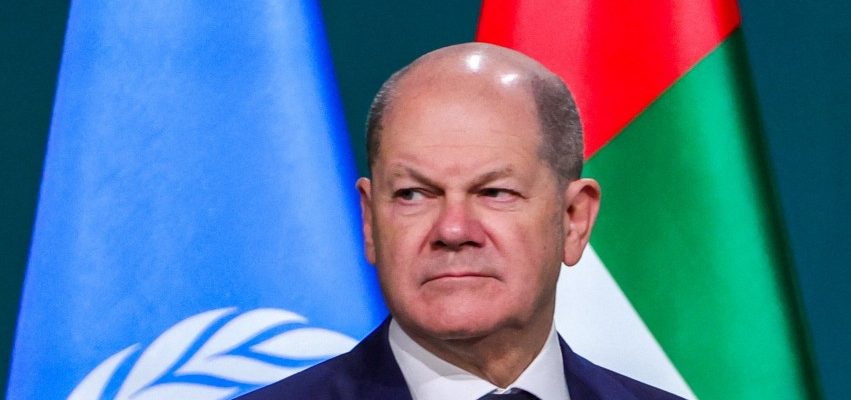Climate and environmental organizations reacted indignantly in Dubai this Saturday in a way that has rarely been met. Kaisa Kosonen, head of the Greenpeace delegation, spoke of a smokescreen, a shiny facade that obscures the responsibility of the biggest polluters. Kerstin Opfer from Germanwatch called it “greenwashing in its purest form” and even negotiators from some country delegations rolled their eyes and shook their heads. What happened?
At midday, the conference presidency from the United Arab Emirates sent out a statement saying it had agreed with Saudi Arabia on a charter to decarbonize oil and gas and accelerate climate action in the area. It was said that 50 oil companies signed the declaration and would take historic first steps. But upon closer inspection, the steps turned out to be small. Too small for many.
“As if a cigarette manufacturer were to claim that they are not responsible for the effects of their product”
The 50 companies, including the state-owned companies Adnoc (Emirates), Saudi Aramco (Saudi Arabia) as well as BP, ENI, Exxonmobil and Shell, want to bring their carbon dioxide (CO₂) emissions “approximately” to zero by 2050. But only the emissions that arise during production up to the point when the companies sell the oil and gas. The problem: Around 80 to 90 percent of the CO₂ emissions from oil and gas arise from their use, i.e. their combustion. It’s like “a cigarette manufacturer saying it’s not responsible for the effects of its product once it leaves the factory,” complained Melanie Robinson of the World Resources Institute.
The charter of the oil and gas companies may have been the start of a tough debate in the halls of Expo City on the outskirts of Dubai. Should there be a wording in the final declaration at the end that includes the exit from fossil fuels? Here, the 197 countries, all of which would have to agree, are worlds apart.
On Friday and Saturday, appearances by more than 160 heads of state and government were on the agenda; everyone had three minutes to speak. Chancellor Olaf Scholz (SPD) took advantage of this for a speech whose tone did not impress anyone. And who presented well-known facts on the matter. Until he deviated from his previously sent manuscript and said: “We must now all demonstrate a firm determination to phase out fossil fuels – coal first and foremost.”
“Today’s weapons of mass destruction are rising temperatures, droughts and sea level rise”
Scholz publicly sided with those who want to go the furthest in Dubai. Above all, the European Union, countries from Africa and South America support this. And of course the group of island states. Gaston Browne, Prime Minister of the Caribbean island state of Antigua and Barbuda, was most clear: “Today’s weapons of mass destruction are not bombs, but rising temperatures, scorching droughts and constant sea level rise – all consequences of greed and indifference.”
The demands, also initiated by the federal government, to double energy efficiency and triple renewable energies by 2030 are very popular – from around 3,400 gigawatts of installed capacity today to 11,000 gigawatts. More than 120 countries are already uniting behind the expansion goal and the president of the conference, Sultan Ahmed Al Jaber, also supported it and called for approval from all countries by the end of the meeting on December 12th.
In contrast to Scholz, Kamala Harris, Vice President of the USA, did not comment on the main topic of the conference. Instead, she warned it would be a struggle to enforce future climate action. “All over the world, people want to slow or stop progress,” Harris said, saying they are science deniers and spreading disinformation. It is also likely to be an indication that the USA could withdraw from the entire UN climate agreement after the possible election of Republican Donald Trump.
Meanwhile, US climate representative John Kerry announced that the US would join an alliance of states to phase out coal. In addition, the Americans and Chinese now also want to tackle the methane problem. The substance is a much more effective greenhouse gas than carbon dioxide, but dissolves after a few decades. According to calculations, pushing back methane could significantly slow down the acute rise in temperature.
Methane mainly escapes from holes in natural gas pipelines and is produced when flaring at production sites. “As long as we are still dependent on gas, we have to produce and transport it in the most climate-friendly way possible,” explained Chancellor Scholz. “We can reduce methane emissions from the energy industry easily and cheaply.” He therefore called for a global coalition to reduce emissions by at least 30 percent by 2030.
On this point, even the Emirati and Saudi statement, along with the 50 oil and gas companies, received widespread praise. The signatories want to end gas flaring completely by 2030 and reach “near zero” methane emissions. But there are quite a few people in Dubai who would like to abolish their entire business model.

